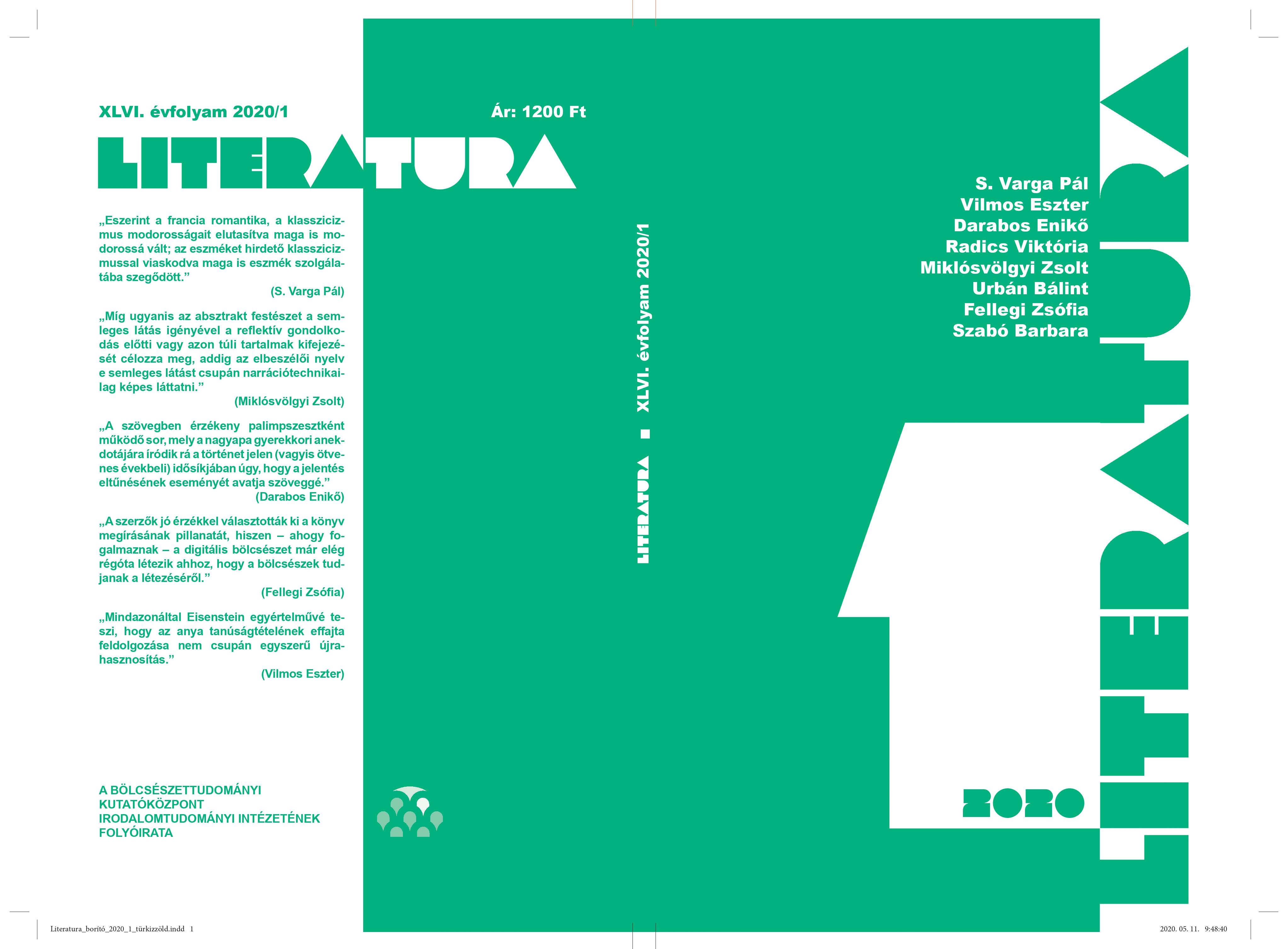A romantika fogalma a 19. századi magyar irodalomkritikai gondolkodásban
Absztrakt
The concept of romanticism in Hungarian literary criticism of 19th century literature
The concept of romanticism is commonly used in the context of late 18th to middle 19th century. According to René Wellek, however, there was a “typological and historical usage” of the term; according to this “’romantic’ means all poetry written in a tradition differing from that descended from classical antiquity”. The theorists of early German romanticism, inspired by the principle of historicism and the holistic view of Göttingen neo-humanism, distinguished two great eras of European civilization: classical and romantic – and their relationship was traced back to the opposition of pagan and Christian religions. When “the broad meaning of the term [of romanticism] spread abroad from Germany in all directions” (Wellek), this also affected Hungary. Hungarian literary historians have always ignored the fact that between 1818 and 1864 this broader interpretation prevailed in Hungarian literary thinking. The role of the initiator belongs to József Teleki, who studied in Göttingen (A’ régi és új költés’ külömbségeiről, – ‘On the Difference between Old and New Poetry’, 1818). The early stages of the history of the concept are characterized by different perceptions of the relationship between classicism and romanticism. While Teleki says there is no way back into the alienated world of classicism, the rearguards of classicism propagated the romanization of classical heritage (Ferenc Toldy). The discourse was steered in a new direction by the theorists of demotic [népies: based in authentic folklore] literature (Ferenc Kölcsey, János Erdélyi); this interpretation equated to romanticism with the works of the low cultural register (written in “Romanic”, i.e. in neo-Latin languages). The preeminent novelist of the time, Zsigmond Kemény, provides a holistic overview of European literature in his essay Classicism and Romanticism (1864), connecting the perspectives of religion, ethics, poetry and society. The historical study of the concept leads to the insight that the term, as it was used in contemporary Hungarian literary criticism, is often based on a broader concept of romanticism, even when it comes to romanticism as a specific period of literary history.



